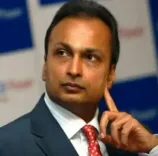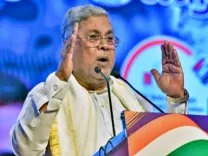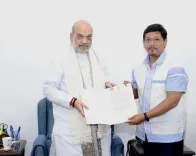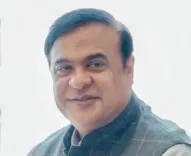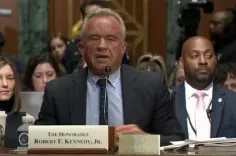How Did PM Modi Commend National Awardee Teachers as a 'Vital Force' in Nation-Building?
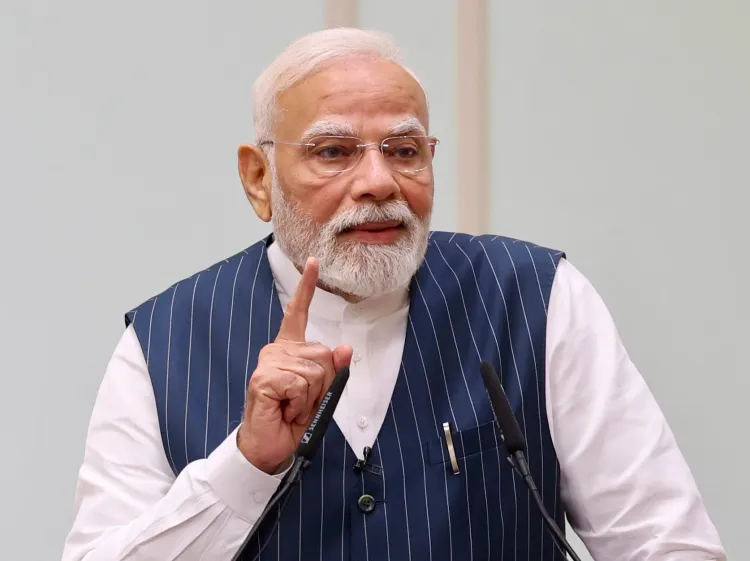
Synopsis
Key Takeaways
- Teachers are essential in shaping the future of the nation.
- GST reforms aim to reduce the financial burden on families.
- Empowering youth is crucial for national development.
- Promoting local products fosters national pride.
- Teachers play a key role in nurturing self-reliance among students.
New Delhi, Sep 4 (NationPress) Prime Minister Narendra Modi delivered an inspiring address to the National Awardee Teachers today, commending the profound respect that Indian society has for educators, whom he described as a formidable force in nation-building.
He stressed that honoring teachers transcends mere tradition; it is a recognition of their lifelong commitment and influence.
The Prime Minister's Office released a statement in which PM Modi offered his sincere congratulations to all National Teachers’ Awards recipients, highlighting that their selection acknowledges their tireless efforts and steadfast dedication.
PM Modi pointed out that teachers are instrumental not only in shaping the present but also in crafting the country's future, making their role one of the most esteemed forms of national service. He recognized that millions of educators across the nation, like this year's awardees, are dedicated to their profession with integrity, commitment, and a spirit of service. On this occasion, he paid homage to the contributions of all such educators involved in nation-building.
According to the statement, PM Modi commended the lasting significance of teachers in India’s development, noting that the nation has always cherished the Guru-Shishya tradition.
He remarked that in India, a Guru serves not just as a knowledge provider but as a life guide.
“As we advance toward a developed India, this tradition serves as our strength. Teachers like you embody this legacy. You are not only imparting literacy but also nurturing the spirit of nationalism in the younger generation,” PM Modi stated.
The Prime Minister underscored that teachers form the bedrock of a robust nation and an empowered society. He acknowledged their sensitivity to the timely evolution of curricula and syllabi, ensuring that education aligns with contemporary demands.
“This same spirit is evident in the ongoing reforms for the nation. Reforms must be continuous and relevant; this is our government’s steadfast commitment,” he added.
Revisiting his pledge from the Red Fort to make India self-reliant through structural reforms, the Prime Minister stated: “I promised a double celebration for the people before Diwali and Chhath Puja. In line with that promise, the GST Council has made a groundbreaking decision. GST has been simplified. Now, there are primarily two GST slabs: 5 percent and 18 percent. These new rates will take effect from Monday, September 22, the first day of Navratri.”
PM Modi highlighted that as Navratri begins, essential items for millions of families will become more affordable. He noted that this year’s Dhanteras will be particularly vibrant, as tax rates on numerous goods have been significantly reduced.
The Prime Minister indicated that GST was one of the most significant economic reforms in Independent India, liberating the country from a complicated web of multiple taxes. Now, as India strides into the 21st century, this new phase of GST reform, referred to by some as ‘GST 2.0,’ is a true double dose of support and growth. This reform promises dual benefits: increased savings for families and enhanced economic momentum.
“This initiative is expected to provide substantial relief to the poor, neo-middle class, middle class, farmers, women, students, and youth. Young professionals embarking on new careers will particularly benefit from the vehicle tax reduction, which will ease household budgets and improve quality of life,” PM Modi asserted.
He also highlighted the transformative tax reforms initiated by the NDA government, noting that extensive GST reductions have significantly alleviated the financial strain on Indian households.
PM Modi pointed out that prior to 2014, under the Congress-led government, essential goods and daily-use items faced heavy taxation. Items such as toothpaste, soap, utensils, bicycles, and even children's candy were taxed at rates ranging from 17 to 28 percent. Basic services like hotel stays also incurred high taxes, including additional state-level levies.
“Had the same tax regime continued, people would still be paying Rs 20 to Rs 25 in taxes for every Rs 100 spent. In contrast, under the BJP-led NDA government, GST on such goods and services has been reduced to just 5 percent, providing direct relief to millions of families nationwide,” PM Modi remarked.
The Prime Minister reiterated that these reforms reflect the government's unwavering dedication to enhancing household savings and easing the cost of living, particularly for the middle class, farmers, women, and young professionals.
He noted that before 2014, medical treatments were prohibitively expensive for many, with the Congress government imposing a 16 percent tax on diagnostic kits. This has now been cut to just 5 percent, making basic healthcare more accessible to the poor and middle class.
“Under the previous administration, constructing a home was a costly venture. Cement was taxed at 29 percent, and appliances such as ACs and TVs at 31 percent. Our government has lowered these rates to 18 percent, alleviating the cost of living for millions,” PM Modi stated.
The Prime Minister also addressed the challenges farmers faced under the earlier tax regime, where essential tools like tractors, irrigation equipment, and pumping sets were subjected to taxes ranging from 12 to 14 percent.
PM Modi emphasized that today, most of these items are taxed at either 0 percent or 5 percent, considerably reducing the cost of farming and supporting rural livelihoods. The reforms are part of the government's broader commitment to enhancing household budgets, empowering farmers, and improving quality of life across the nation.
He noted that sectors employing large numbers of people, such as textiles, handicrafts, and leather, have received significant relief through reduced GST rates. These changes will benefit not only workers and entrepreneurs in these fields but also lead to lower prices for essential goods like clothing and footwear.
“For startups, MSMEs, and small traders, the government has paired tax reductions with streamlined processes, ensuring ease of business and enhanced operational flexibility,” PM Modi added.
Recognizing the increasing emphasis on wellness, the Prime Minister announced lower GST on services like gyms, salons, and yoga, promoting fitness among the youth.
PM Modi articulated that these reforms are part of a broader agenda to develop a Viksit Bharat, where youth, enterprise, and health are key national priorities.
The Prime Minister described the recent GST reforms as a historic advancement in India’s economic evolution, stating that the reforms have introduced “five key gems” into the country’s flourishing economy.
“First, the tax system has become significantly simpler. Second, the quality of life for Indian citizens will further improve. Third, consumption and economic growth will receive an added boost.
“Fourth, ease of doing business will be enhanced, leading to more investments and job creation. Fifth, the spirit of cooperative federalism and partnership between the Centre and the States will be further reinforced, which is essential for a Developed India,” PM Modi emphasized.
He reiterated the government’s guiding principle, “Nagarik Devo Bhava” (Citizen is God), underscoring its commitment to the welfare of every Indian.
The Prime Minister highlighted that this year, tax relief has not only been achieved through GST reductions but also through significant income tax cuts. Income up to Rs 12 lakh is now tax-free, providing significant relief to taxpayers.
PM Modi stressed that inflation in India is currently at a very low and manageable level, reflecting true governance that is pro-people.
Consequently, India’s growth rate has soared to nearly eight percent, positioning it as the fastest-growing major economy globally. This remarkable achievement is a testament to the strength and resolve of 140 crore Indians.
The Prime Minister reaffirmed the government’s commitment to continue the reform journey aimed at achieving self-reliance for India.
“Aatmanirbhar Bharat (Self-Reliant India) is not just a slogan but a dedicated movement,” PM Modi asserted.
He urged all teachers in the country to continually plant the seeds of self-reliance in every student.
The Prime Minister emphasized the essential role of educators in communicating the significance of a self-reliant India in clear and relatable terms.
He encouraged teachers to inspire students to understand that a nation dependent on others cannot progress as swiftly as it is capable of.
The Prime Minister urged teachers to engage students in activities that highlight the presence of imported products in daily life while promoting the use of indigenous alternatives.
He cited the example of India spending over Rs 1 lakh crore annually on edible oil imports, underscoring that self-reliance is vital for national development.
Referring to Mahatma Gandhi’s legacy of advocating Swadeshi, the Prime Minister stated that it is now the duty of this generation to complete that mission. PM Modi stressed that every student should ask themselves, “What can I do to fulfill the needs of my country?” It is crucial to connect oneself with the country’s needs. It is this nation that propels us forward in life, providing us with so much; therefore, every student must always carry this thought in their heart: “What can I contribute to my country, and which of the nation’s needs can I help meet?”
PM Modi also praised the growing interest of Indian students in innovation, science, and technology, crediting the success of the Chandrayaan Mission for motivating millions to pursue careers as scientists and innovators.
He recalled how Group Captain Shubanshu Shukla’s return from a space mission energized his school community, highlighting the vital role teachers play in mentoring and guiding youth beyond academics.
The Prime Minister emphasized the support now available through the Atal Innovation Mission and Atal Tinkering Labs, with over 10,000 labs already established nationwide. The government has approved the establishment of an additional 50,000 labs to provide young innovators across India with more opportunities to innovate.
“The success of these initiatives hinges significantly on the dedicated efforts of teachers nurturing the next generation of innovators,” PM Modi stressed.
He also highlighted the government's dual focus on empowering youth digitally while protecting them from the adverse effects of the digital world. He referenced the recently passed law in Parliament regulating online gaming, aimed at safeguarding students and families from addictive, financially exploitative, and violent content.
The Prime Minister urged teachers to raise awareness among students about these risks. He emphasized the government’s commitment to promoting India’s presence in the global gaming sector, particularly by leveraging traditional Indian games and supporting innovative startups.
“By educating students about responsible gaming and digital opportunities, the government envisions creating promising career options for the youth in this expanding industry,” PM Modi added.
The Prime Minister also called upon educators to play a pivotal role in the ‘Vocal for Local’ campaign, encouraging the embrace of indigenous products as symbols of India’s pride and self-respect. He emphasized involving students in school projects and activities that identify and celebrate ‘Made in India’ products.
PM Modi proposed assignments that help students and their families recognize the use of local products at home, raising awareness from an early age. He also encouraged the incorporation of indigenous materials in art and craft classes and school celebrations to cultivate a lifelong sense of pride in Indian-made goods.
PM Modi advocated for schools to organize initiatives like ‘Swadeshi Week’ and ‘Local Product Day,’ where students bring local products from their families and share their stories. He stressed discussions about the origins, makers, and national significance of these products to foster deeper awareness.
“There should be interactions between students and local artisans, showcasing the value of indigenous crafts and manufacturing passed down through generations. Promoting Made in India gifts for occasions like birthdays can instill pride in local products. Such efforts will nurture patriotism, self-confidence, and respect for labor among youth, linking their personal success to national progress,” PM Modi concluded.
The Prime Minister expressed confidence that teachers will persist in advancing this mission of nation-building with unwavering dedication.
PM Modi wrapped up his speech by congratulating all award-winning teachers for their outstanding contributions.

